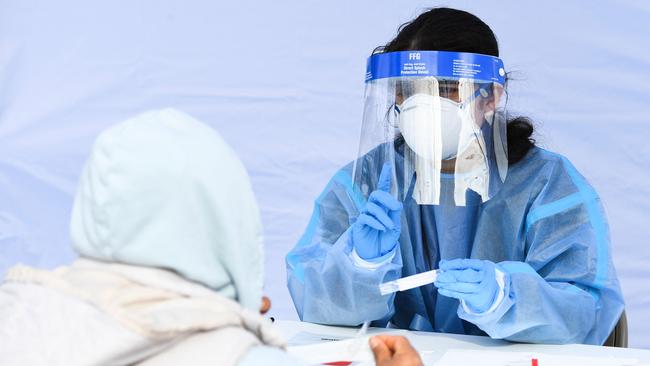
Some years ago, individual businesses in Australia began making their own decisions over issues on energy efficiency and broader issues of “sustainability”.
It started out slowly, but moved recently to a great leap forward recently for some, such as a public commitment to move towards net zero carbon emissions – in many cases by a specific date.
Initially reluctant, business groups began to follow suit, realising that energy and climate were global issues that business needed to address regardless of the policies of the government of the day.
Australian business now faces a similar crossroads where it needs to step up in the handling of the Covid-19 pandemic.
It needs to move from a reactive position, of watching and waiting for guidance and initiative from governments – state and federal – to becoming proactive.
It needs to not only take the initiative for handling new challenges in workplaces now, but to look over the horizon in terms of how to best handle a pandemic that could well be with us for the next few years.
It could, for example, see businesses or industry groups banding together to buy millions of rapid antigen tests, hiring a charter jet and flying them into Australia themselves to give them access to a large and regularly available supply of low-cost rapid antigen tests for their staff.
As individuals struggle to buy rapid tests, the employer who has access to state-of-the-art tests that they can offer staff for free, rather than having their staff struggling to buy tests themselves (and, if they do find them, having to pay large sums of money for them), will have a competitive advantage.
The Australian Council of Trade Unions is already arguing that employers should pay for employee rapid tests. With some tests now costing $20 or $30 – if you can get them – employers having access to large industrial quantities of rapid tests that they can offer to their staff for free will be much better placed than their competitors.
Eighteen months ago, businessman Andrew Forrest bizarrely was criticised when he managed to get a large quantity of tests flown in from China for health workers in Victoria at a time when the system was in crisis.
Now pharmacy groups in Australia are already chartering their own private planes to buy RATs from China.
It’s not out of the question that a big company or industry group could also do the same.
Having free rapid tests for staff could also provide an incentive for employers to get people back in the office at least a few days a week.
Access to rapid tests is one of the many issues Australians are now facing as they “live with the virus”.
Two years ago, the world saw the pandemic as a short-term issue that could be solved with a few months lockdown and a vaccine.
It is now clear it is a long-term issue that has not been solved – and this is the case despite a large percentage of the Australian population having had two doses of the Covid-19 vaccine, and many have had three.
This is why business needs to shift its thinking from relying on government to take the lead.
The next few months will be dominated by the federal election.
Politically, the next few months will be about marketing and not pushing ahead with the long-term planning needed to best make our way through what is effectively a war without bullets.
But as they face a pandemic and operate in a global world, business leaders need to step up and take charge of developing their own plans and strategies in terms of handling the pandemic.
Two years ago, it was all about managing staff working from home. It was a human resources issue.
More recently it has expanded into a supply chain issue. Then, as Business Council chief Tim Reed said this week, it was all about access to PCR tests.
Now it is access to rapid testing.
Business leaders think nothing of having economists and economics advisers on staff (or access to them through business groups and consultants) telling them about future economic trends, such as growth forecasts and forecasts of inflation and interest rates.
They regard it as an essential part of their long-term planning and don’t rely on the government to do it for them.
Now, they need to have their own access to high-level, strategic information about the pandemic – where is it going? How are businesses around the world reacting? What does it mean for their workers? What are the latest trends with the virus – including vaccines and RATs?
The pandemic has changed everything and, like energy issues, expectations of business are changing.
BlackRock founder and chief executive Larry Fink, in his annual letter to companies that his $US10 trillion ($13.9 trillion) fund invests in, said employees now regarded their employers as the most trusted source of information.
“Covid-19 has deepened the erosion of trust in traditional institutions and exacerbated polarisation in many Western societies,” Fink wrote.
“In this environment, facts themselves are frequently in dispute, but businesses have the opportunity to lead. Employees are increasingly looking to their employer as the most trusted, competent and ethical source of information – more so than government, the media and NGOs.”
Businesses have to think and act globally. They cannot afford not to.
Handling the pandemic – and working out how to be ready for what is coming down the pike this year and next from Covid-19 – is an urgent issue.
It is an issue that is far too important to be left to the politicians.





